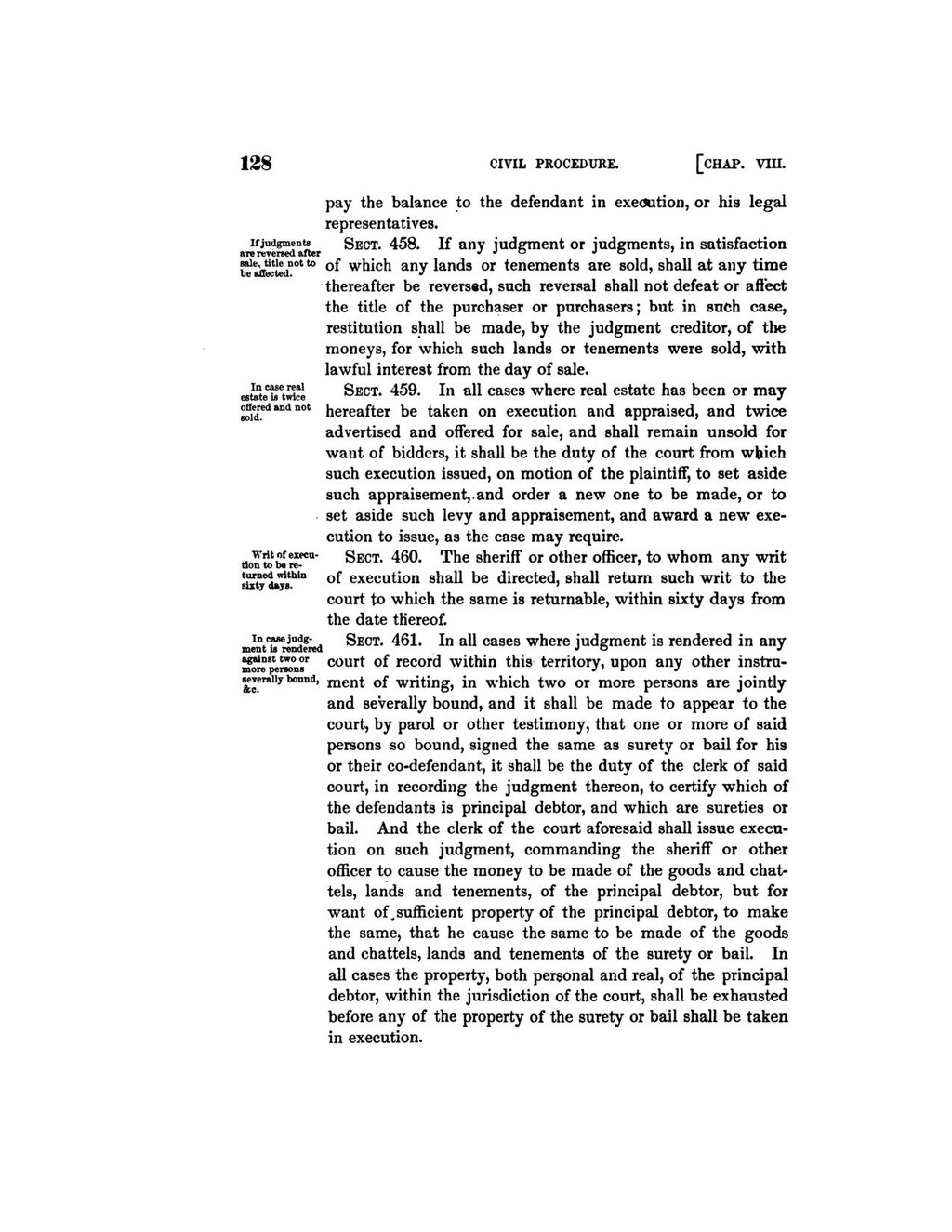pay the balance to the defendant in execution, or his legal representatives.
If judgements are reversed after sale, title not to be affected.Sect. 458. If any judgment or judgments, in satisfaction of which any lands or tenements are sold, shall at any time thereafter be reversed, such reversal shall not defeat or affect the title of the purchaser or purchasers; but in such case, restitution shall be made, by the judgment creditor, of the moneys, for which such lands or tenements were sold, with lawful interest from the day of sale.
In case real estate is twice offered and not sold.Sect. 459. In all cases where real estate has been or may hereafter be taken on execution and appraised, and twice advertised and offered for sale, and shall remain unsold for want of bidders, it shall be the duty of the court from which such execution issued, on motion of the plaintiff, to set aside such appraisement, and order a new one to be made, or to set aside such levy and appraisement, and award a new execution to issue, as the case may require.
Writ of execution to be returned within sixty days.Sect. 460. The sheriff or other officer, to whom any writ of execution shall be directed, shall return such writ to the court to which the same is returnable, within sixty days from the date thereof.
In case judgement is rendered against two or more persons severally bound, &c.Sect. 461. In all cases where judgment is rendered in any court of record within this territory, upon any other instrument of writing, in which two or more persons are jointly and severally bound, and it shall be made to appear to the court, by parol or other testimony, that one or more of said persons so bound, signed the same as surety or bail for his or their co-defendant, it shall be the duty of the clerk of said court, in recording the judgment thereon, to certify which of the defendants is principal debtor, and which are sureties or bail. And the clerk of the court aforesaid shall issue execution on such judgment, commanding the sheriff or other officer to cause the money to be made of the goods and chattels, lands and tenements, of the principal debtor, but for want of sufficient property of the principal debtor, to make the same, that he cause the same to be made of the goods and chattels, lands and tenements of the surety or bail. In all cases the property, both personal and real, of the principal debtor, within the jurisdiction of the court, shall be exhausted before any of the property of the surety or bail shall be taken in execution.
